The Daily Shot: 09-Jul-20
• Global Developments
• The United States
• Canada
• The United Kingdom
• The Eurozone
• Japan
• China
• Emerging Markets
• Commodities
• Equities
• Alternatives
• Rates
• Food for Thought
Global Developments
1. Technical indicators point to further downside risks for the US dollar.
 Source: Reuters Read full article
Source: Reuters Read full article
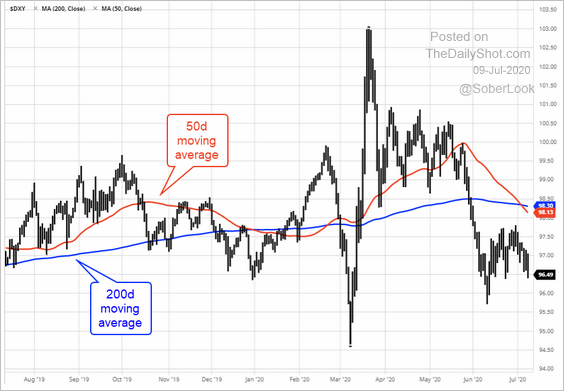 Source: barchart.com
Source: barchart.com
——————–
2. The reported share of dollar reserves globally rose amid market volatility in Q1.
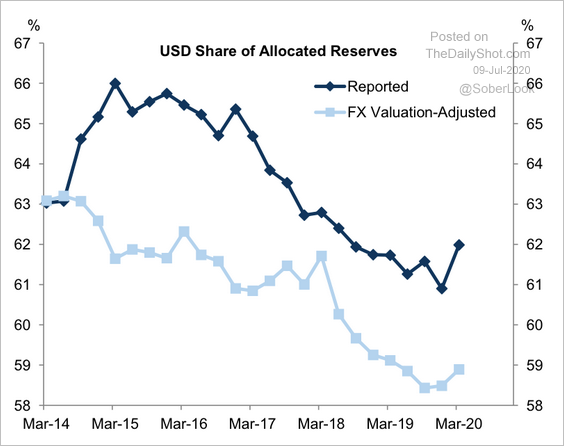 Source: Goldman Sachs
Source: Goldman Sachs
3. Despite the recent bounce, inflation swap markets still expect the CPI to remain subdued for years to come.
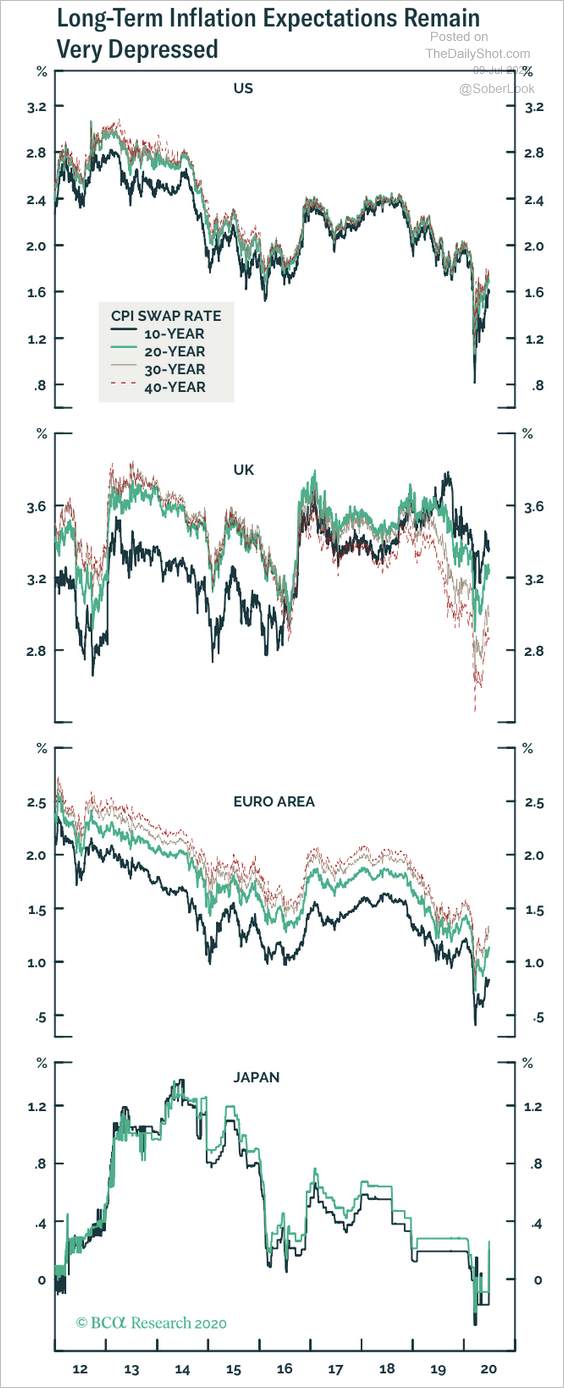 Source: BCA Research
Source: BCA Research
4. Asia ex-Japan is expected to take up the largest share of global GDP over the next few years.
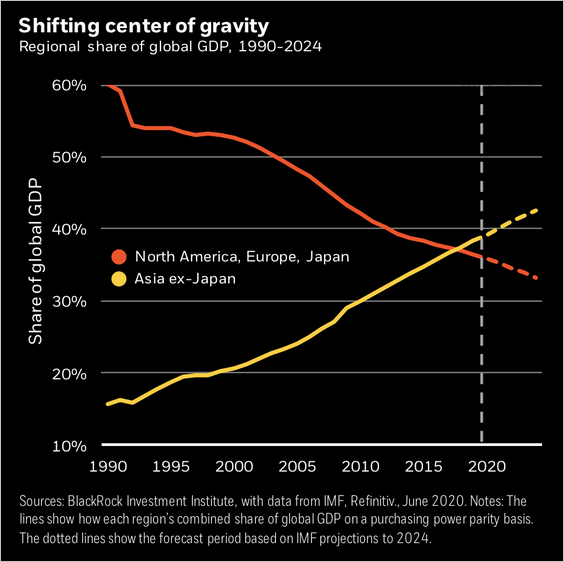 Source: BlackRock
Source: BlackRock
5. What options do governments typically have in addressing a massive spike in sovereign debt?
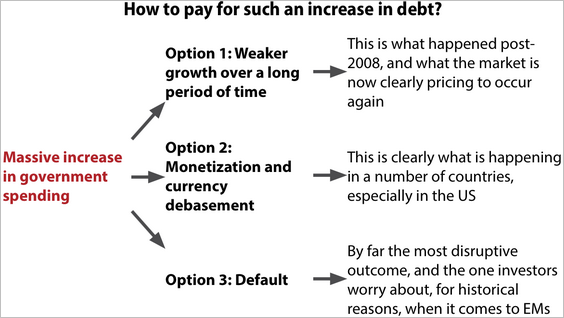 Source: Gavekal
Source: Gavekal
6. Margin growth will become increasingly difficult for automakers over the next several years, according to Moody’s.
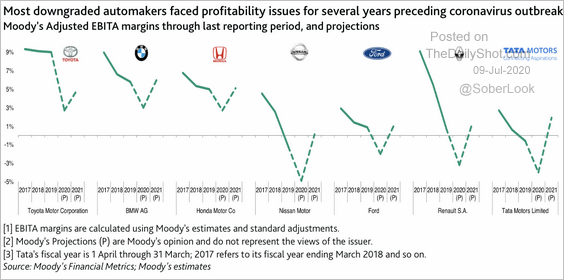 Source: Moody’s Investors Service
Source: Moody’s Investors Service
7. Budget airlines see capacity returning to normal.
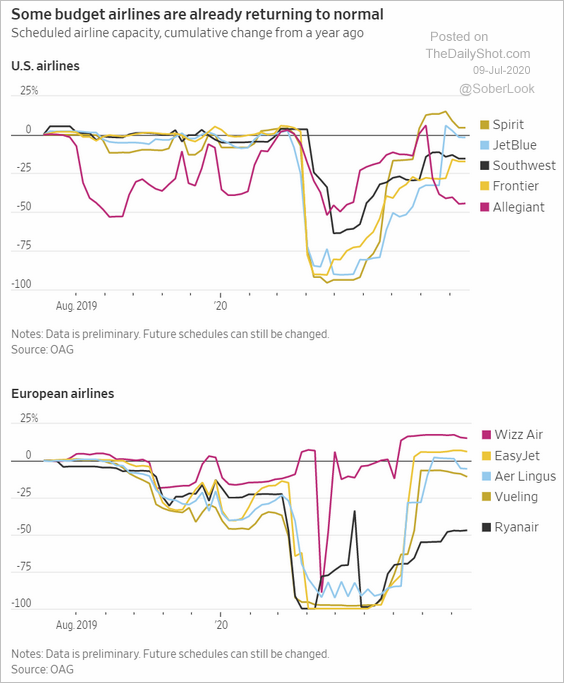 Source: @WSJ Read full article
Source: @WSJ Read full article
8. There is an inverse relationship between COVID-19 testing rates and deaths.
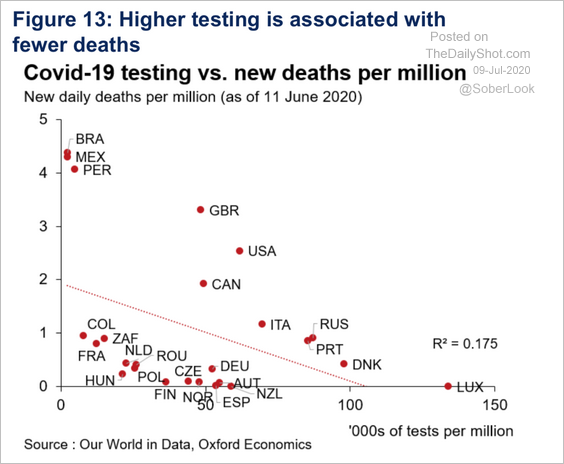 Source: Oxford Economics
Source: Oxford Economics
9. The share of jobs that can be done at home is correlated with the GDP per capita.
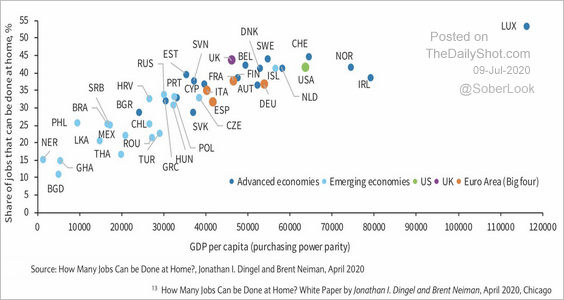 Source: @Barclays, @LizAnnSonders
Source: @Barclays, @LizAnnSonders
10. This chart shows the trend in corporate tax rates by region.
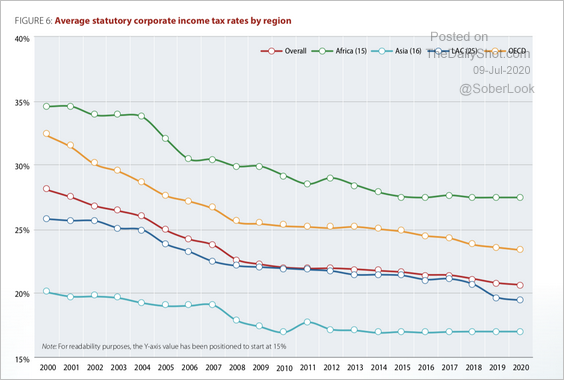 Source: OECD Read full article
Source: OECD Read full article
And here is an estimate of tax revenue lost due to companies shifting profits to tax havens.
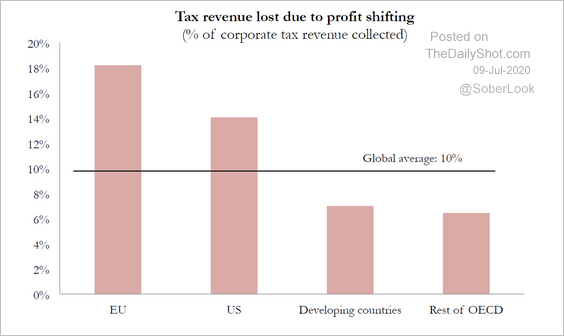 Source: WID Read full article
Source: WID Read full article
The United States
1. Loan applications to purchase a home remain elevated as mortgage rates hit record lows.
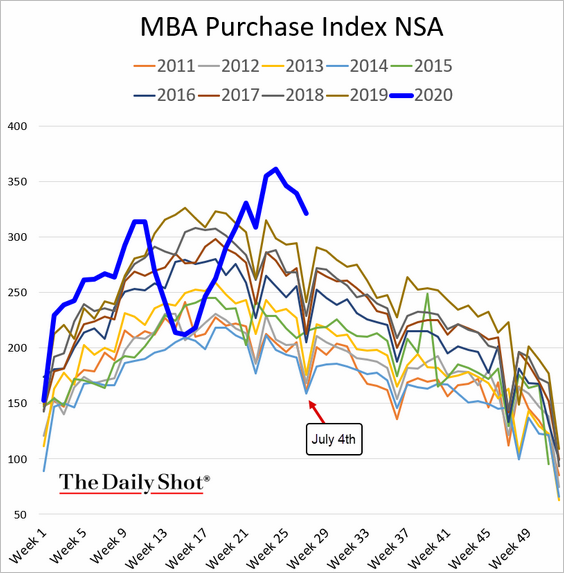
2. Credit card borrowing declined sharply this year. Households cut back spending while the government offered generous support.
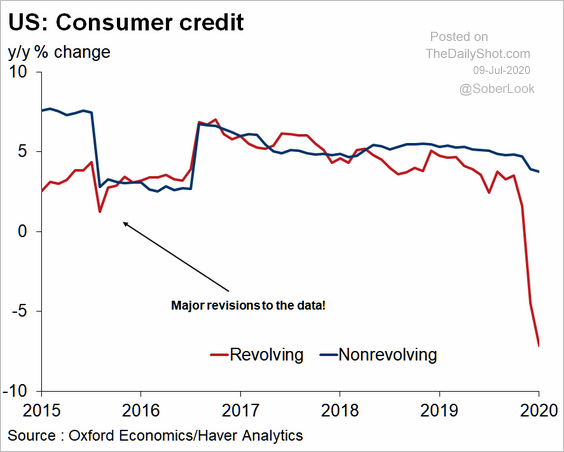 Source: Oxford Economics
Source: Oxford Economics
3. High-frequency indicators continue to signal a pause in the recovery.
• Consumer sentiment:
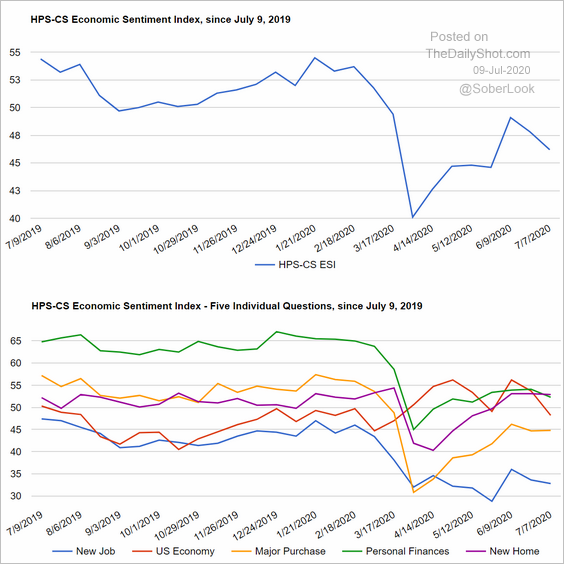 Source: @HPSInsight, @CivicScience Read full article
Source: @HPSInsight, @CivicScience Read full article
• The Oxford Economics Recovery Tracker:
![]() Source: Oxford Economics
Source: Oxford Economics
• The New York Fed’s economic activity index (at the national level):
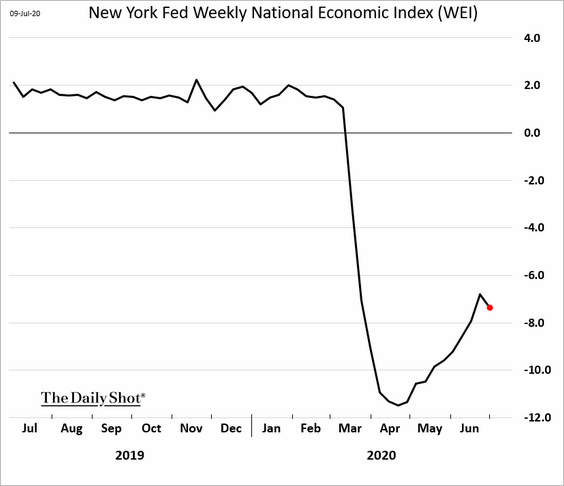
——————–
4. Next, we have some additional data on PPP loans (by loan size, over time).
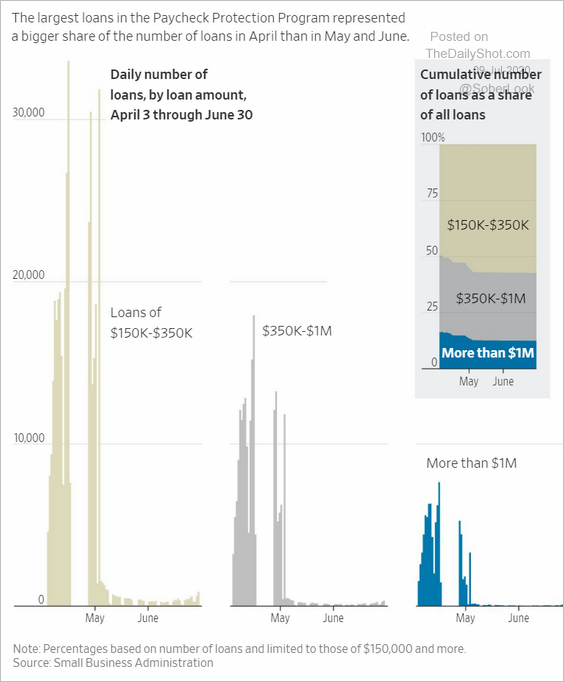 Source: @WSJ Read full article
Source: @WSJ Read full article
5. In the first quarter, Northeast states saw a sharper GDP contraction than the rest of the country.
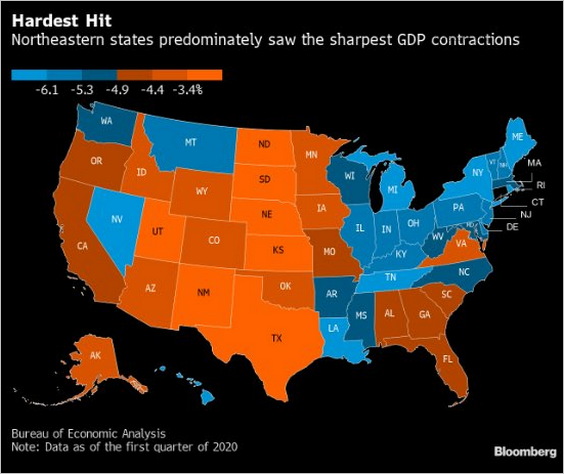 Source: @LizAnnSonders, @BEA_News, @bloomberg
Source: @LizAnnSonders, @BEA_News, @bloomberg
Canada
1. The nation’s factory activity stabilized in June.
• Markit PMI:
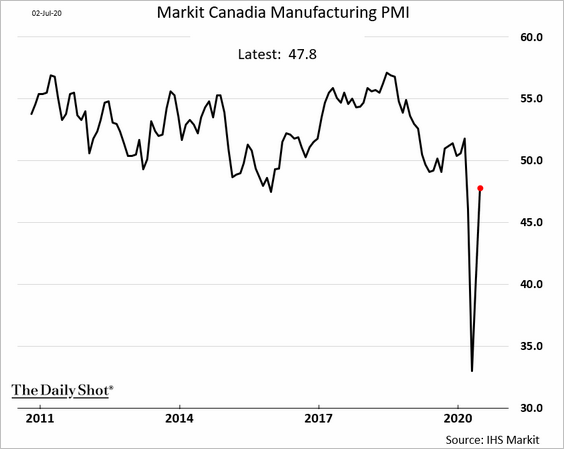
• Ivey PMI:
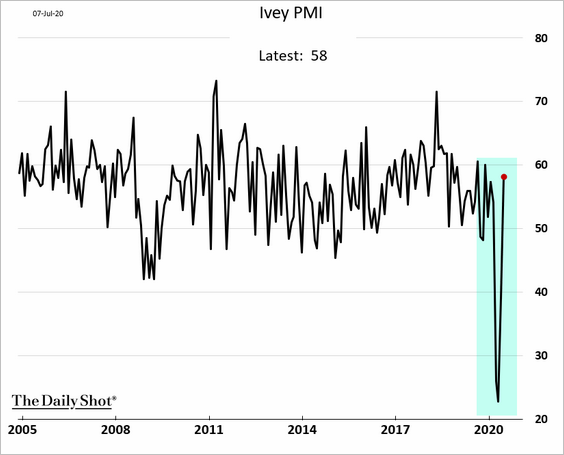
 Source: Reuters Read full article
Source: Reuters Read full article
——————–
2. Businesses expect a record drop in future sales and investment.
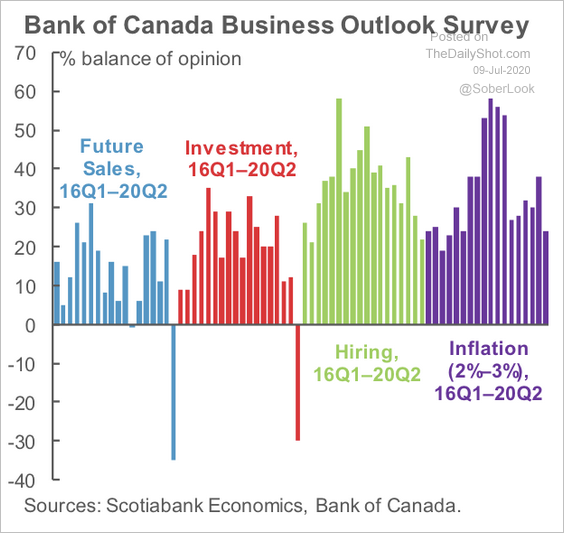 Source: Scotiabank Economics
Source: Scotiabank Economics
3. This chart shows the business inflation outlook vs. actual inflation.
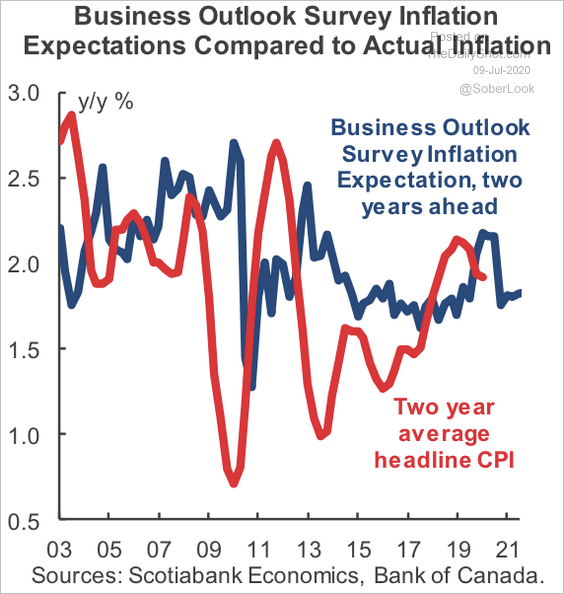 Source: Scotiabank Economics
Source: Scotiabank Economics
The United Kingdom
1. Car registrations rebounded last month but remained 35% below 2019 levels.
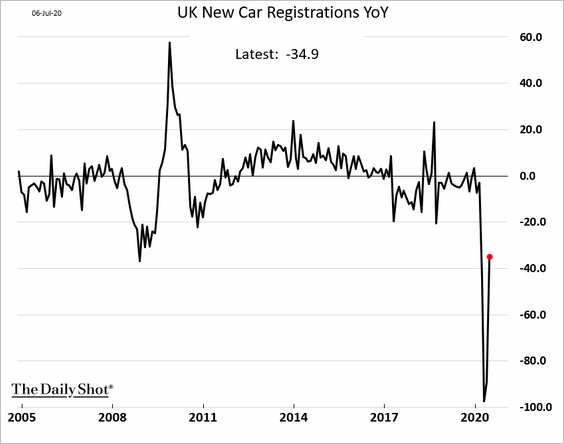
2. The RICS housing index was better than expected, as housing metrics improve (second chart).
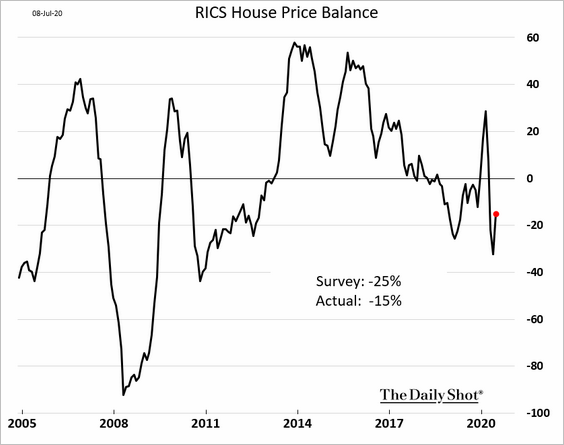
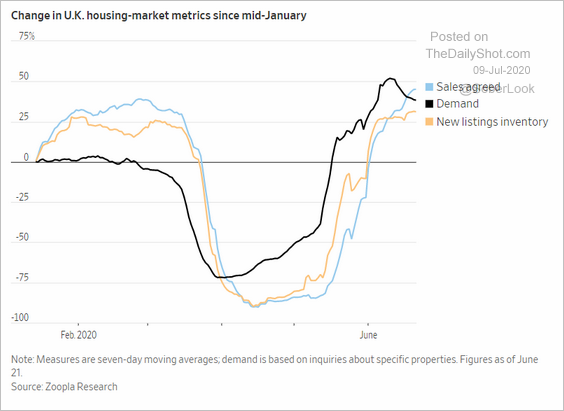 Source: @WSJ Read full article
Source: @WSJ Read full article
——————–
3. The reopening process has been sluggish.
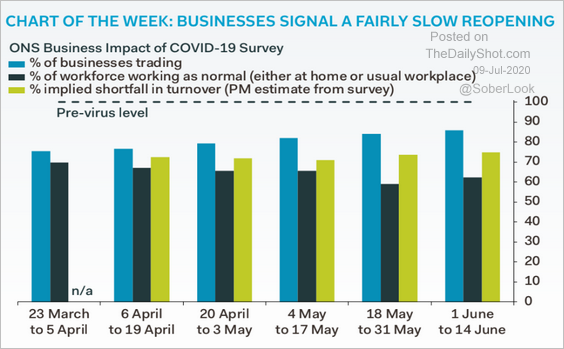 Source: Pantheon Macroeconomics
Source: Pantheon Macroeconomics
4. This chart shows union membership in the UK and the US.
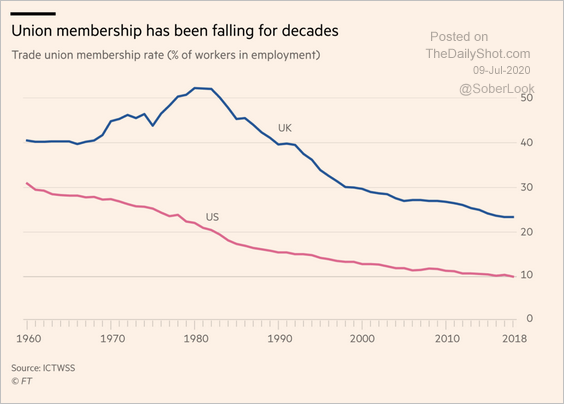 Source: @financialtimes Read full article
Source: @financialtimes Read full article
The Eurozone
1. Let’s start with this chart of ECB asset purchases.
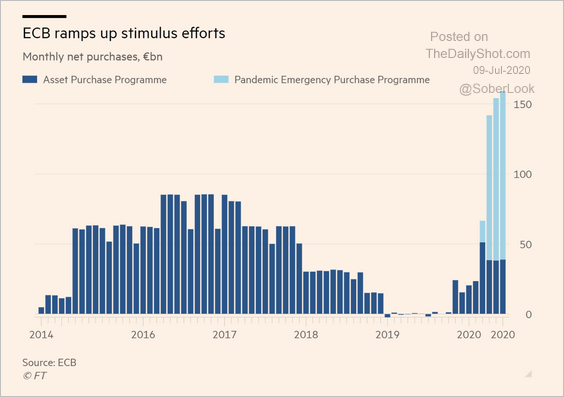 Source: @financialtimes Read full article
Source: @financialtimes Read full article
2. TARGET2 imbalances have widened further after the latest tranche of TLTRO funding (see story).
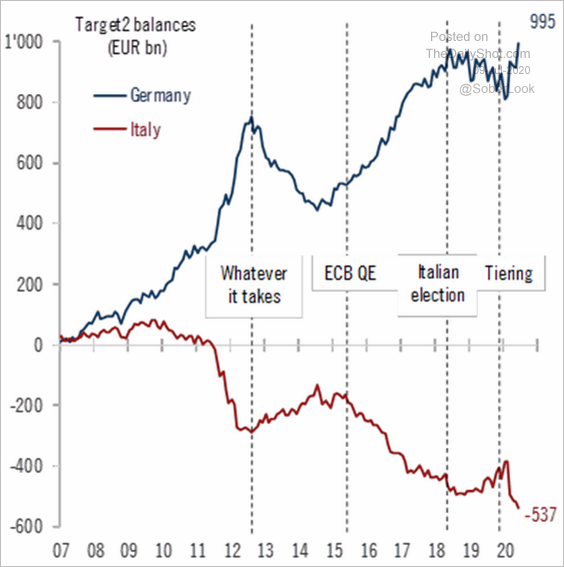 Source: @fwred, Pictet Wealth Management
Source: @fwred, Pictet Wealth Management
3. The Ifo indicator has been pointing to downside risks for Germany’s construction output.
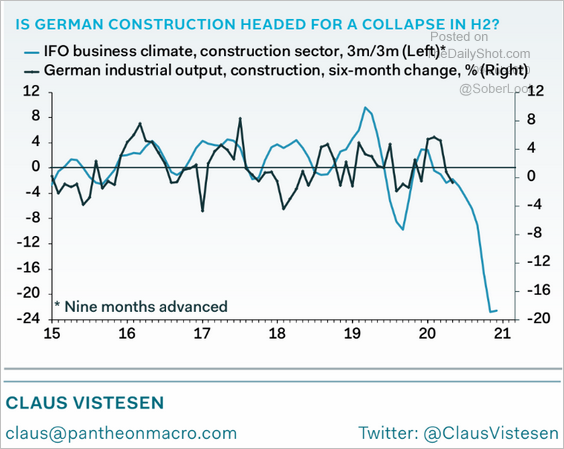 Source: Pantheon Macroeconomics
Source: Pantheon Macroeconomics
Japan
1. The Economy Watchers indicator rebounded sharply last month.
 Source: The Japan Times Read full article
Source: The Japan Times Read full article
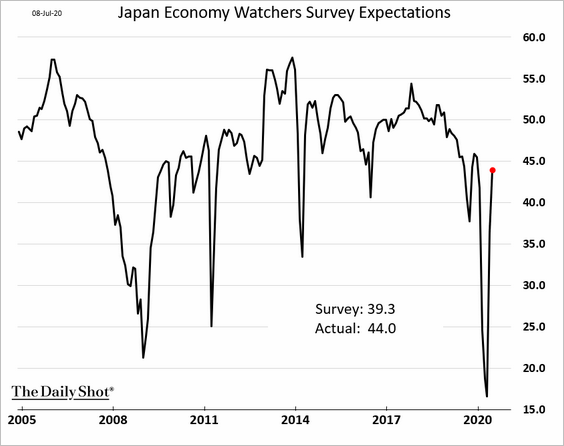
——————–
2. The acceleration in Japan’s broad money supply growth has been unprecedented.
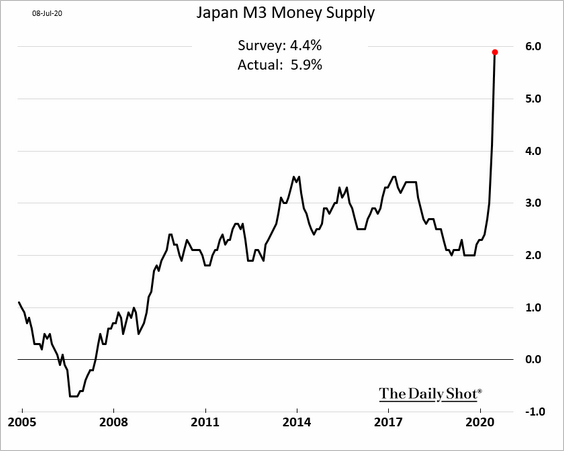
China
1. Rising bond yields, …
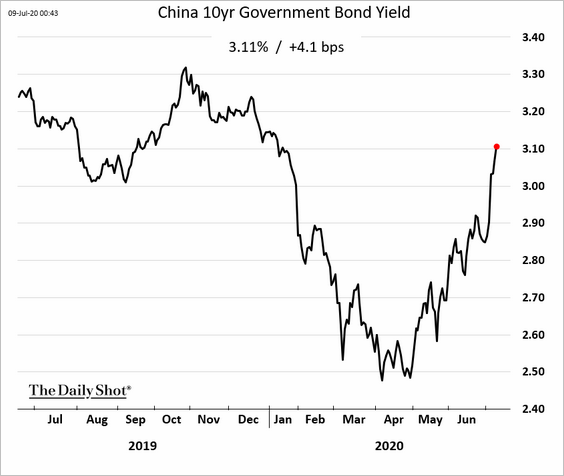
… widening spreads with Treasuries, …
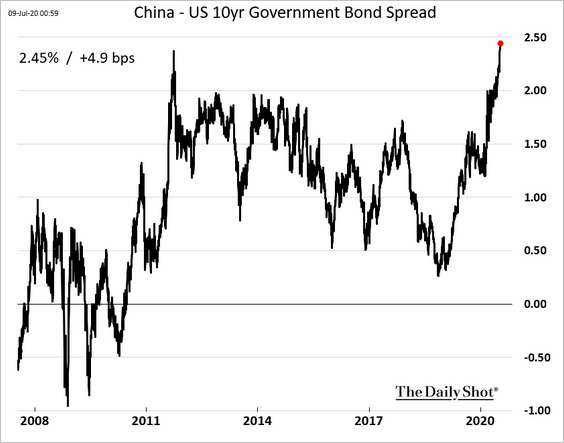
… and portfolio inflows into the equity market (greenlighted by Beijing) …
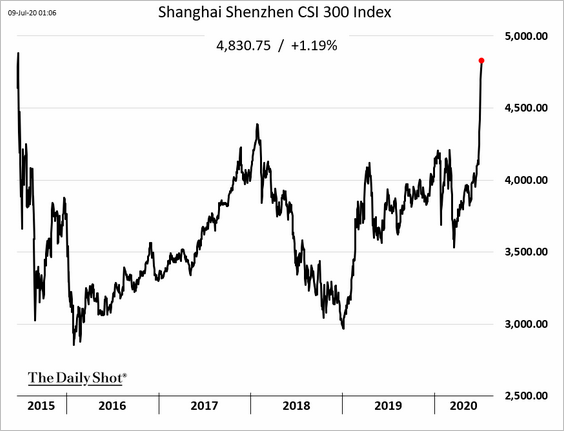
… are supporting the renminbi.
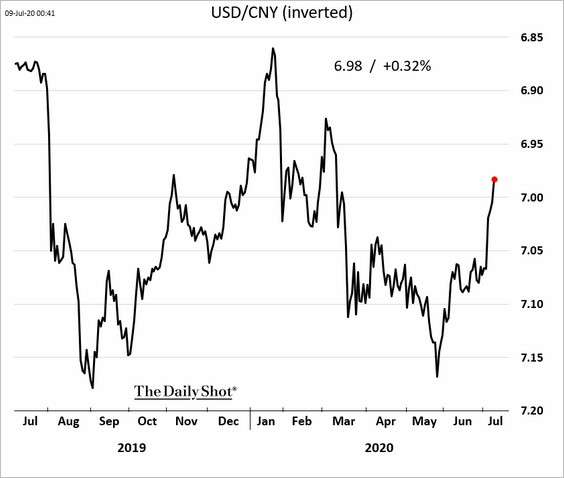
——————–
2. The headline consumer inflation rate held steady last month, …
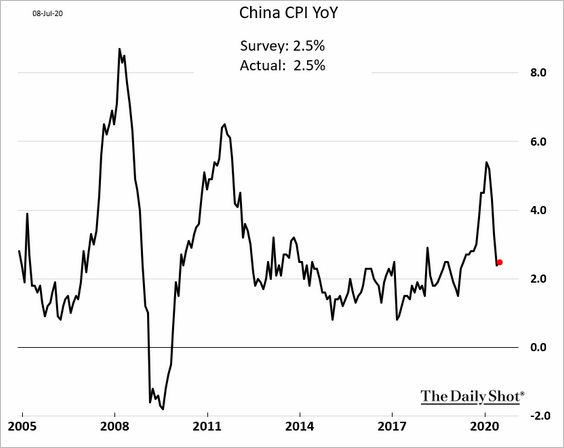
… but the core CPI dipped below 1% for the first time in a decade.
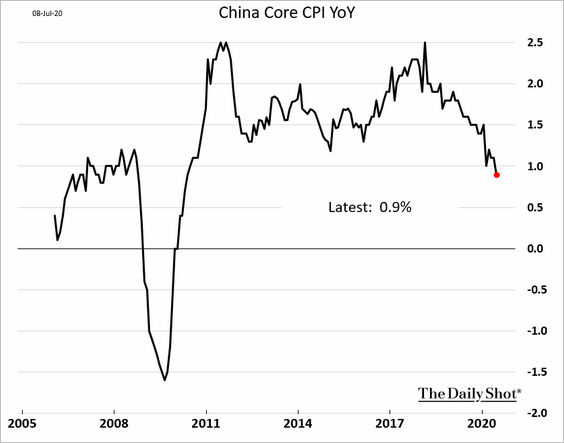
——————–
3. The PPI ticked up, but producer prices remain well below last year’s levels.
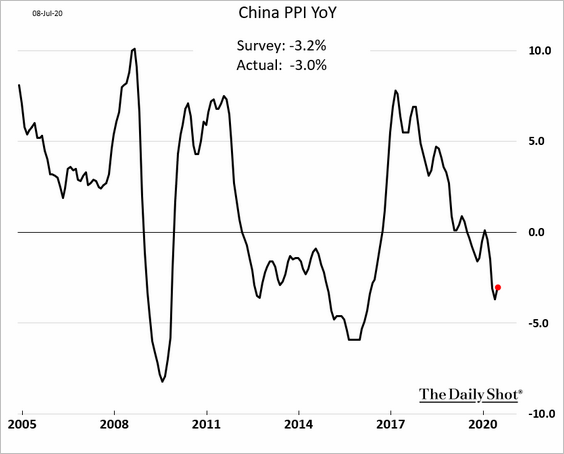
4. Over the past few months, several cities have eased requirements to attract new residents and boost local economic activity.
 Source: Pavilion Global Markets
Source: Pavilion Global Markets
Relaxing migration rules should help the recovery in Chinese housing, according to Pavilion Global Markets.
 Source: Pavilion Global Markets
Source: Pavilion Global Markets
Home sales in cities with such policies substantially outperformed peers (chart from Gavekal).
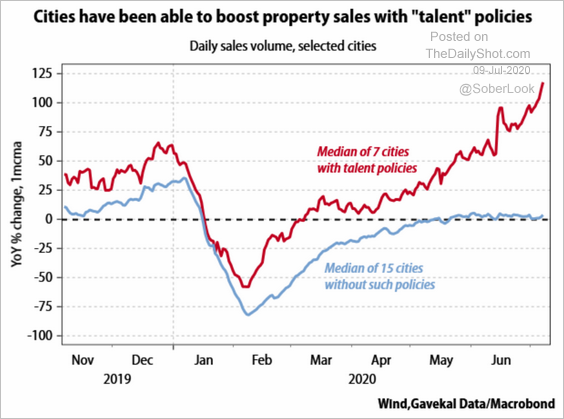 Source: Gavekal
Source: Gavekal
Emerging Markets
1. Brazil’s retail sales rebounded in May, exceeding forecasts.
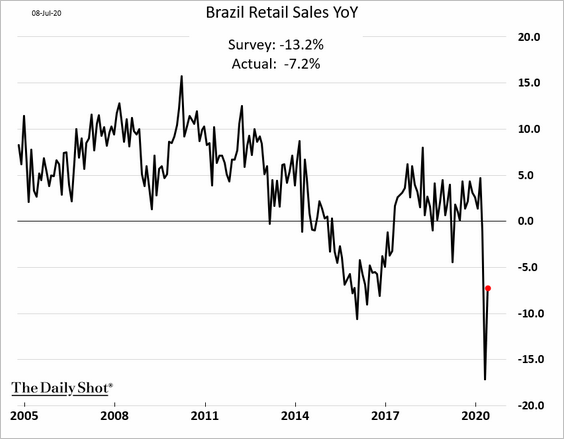
2. Russia’s inflation remains subdued.
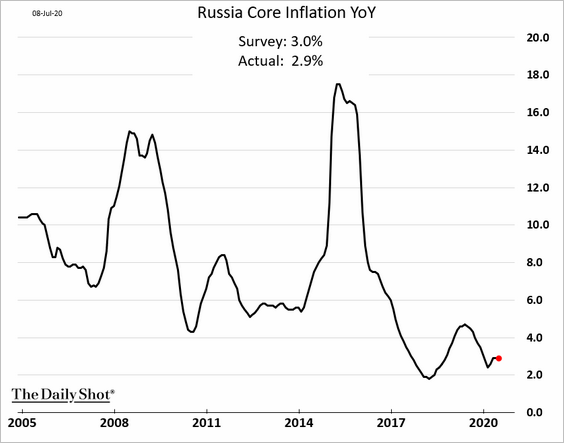
3. EM stocks have caught up with global markets year-to-date.
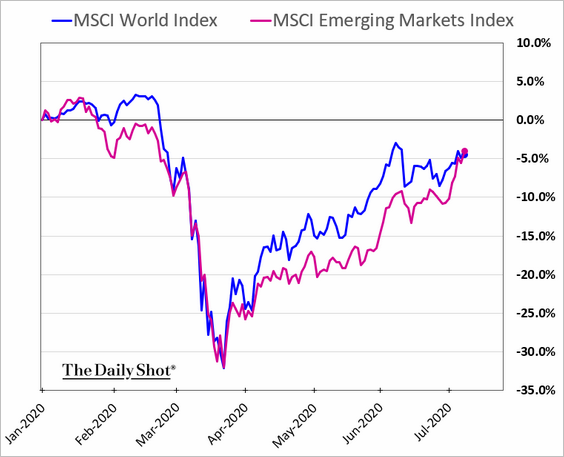
4. This scatterplot from the IMF shows each country’s foreign reserves vs. external financing requirements.
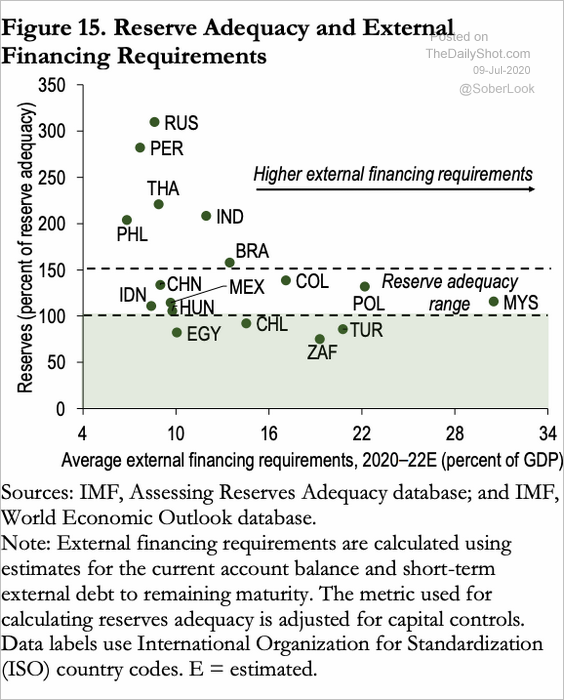 Source: @adam_tooze
Source: @adam_tooze
Commodities
1. Gold topped $1,800/oz for the first time since 2011.
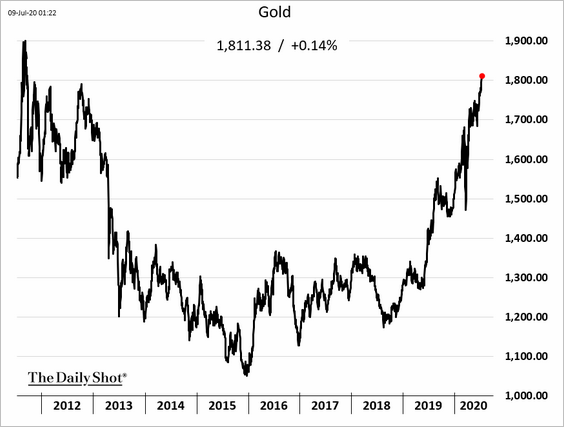
2. Copper continues to rally.
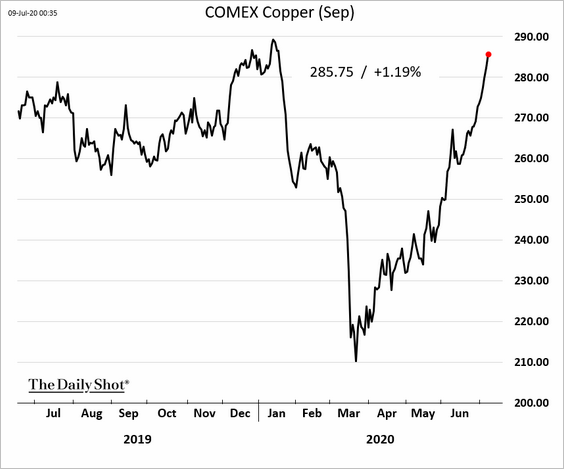
3. Lumber futures are breaking out.
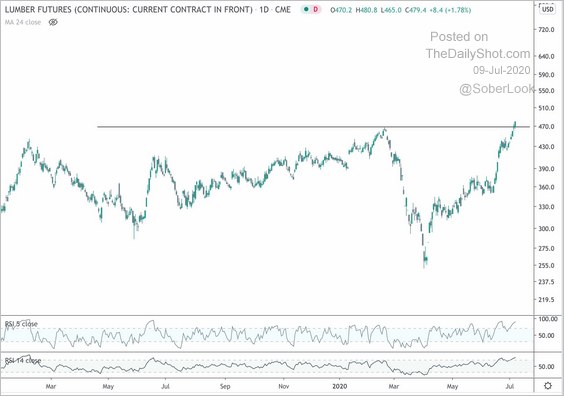 Source: @FibLines
Source: @FibLines
Equities
1. The biggest companies by market cap are the most expensive and have the highest returns this year.
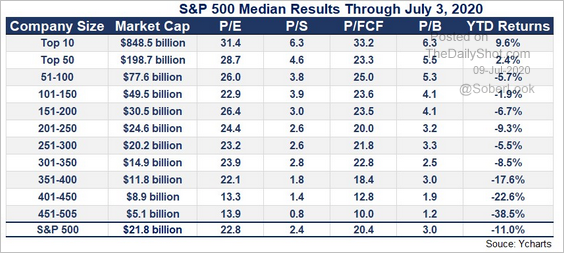 Source: @awealthofcs Read full article
Source: @awealthofcs Read full article
2. Will the streak of positive US economic surprises translate into Q2 earnings surprises?
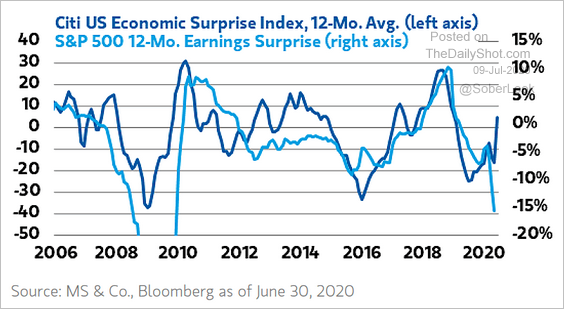 Source: @ISABELNET_SA, @MorganStanley
Source: @ISABELNET_SA, @MorganStanley
3. The S&P 500 futures sentiment indicator points to extreme bullishness.
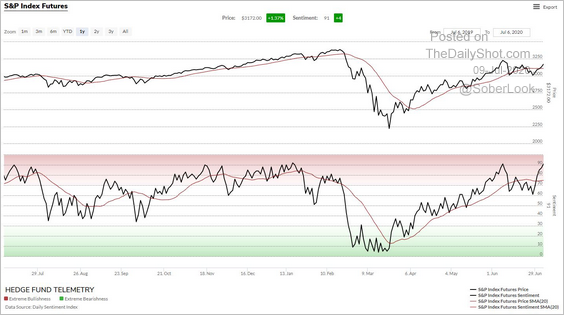 Source: @TommyThornton
Source: @TommyThornton
4. This chart shows the largest drawdowns in the Dow since the start of the 20th century.
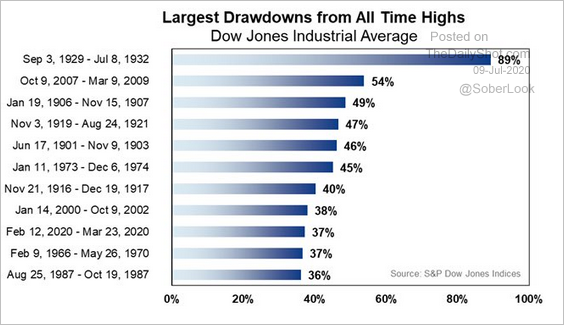 Source: @LizAnnSonders, @SPGlobal
Source: @LizAnnSonders, @SPGlobal
5. Who owns the US stock market?
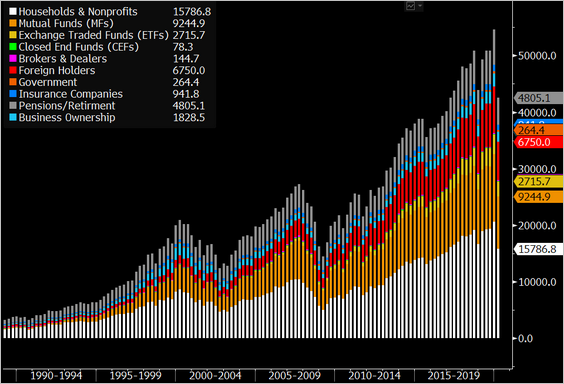 Source: @JSeyff, @TheTerminal
Source: @JSeyff, @TheTerminal
6. Market breadth hasn’t been great lately.
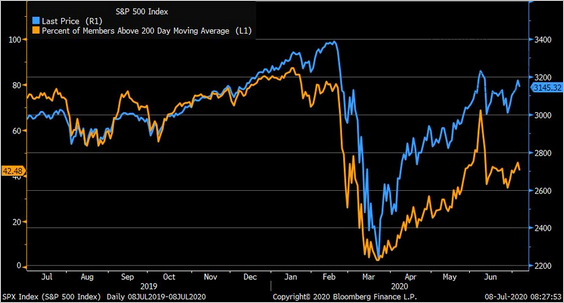 Source: @LizAnnSonders, @Bloomberg
Source: @LizAnnSonders, @Bloomberg
7. How does the US market perform under different political regimes?
• President’s party:
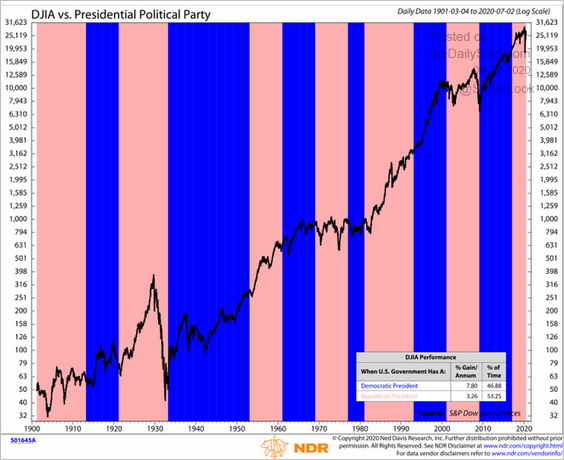 Source: @WillieDelwiche
Source: @WillieDelwiche
• Control of Congress:
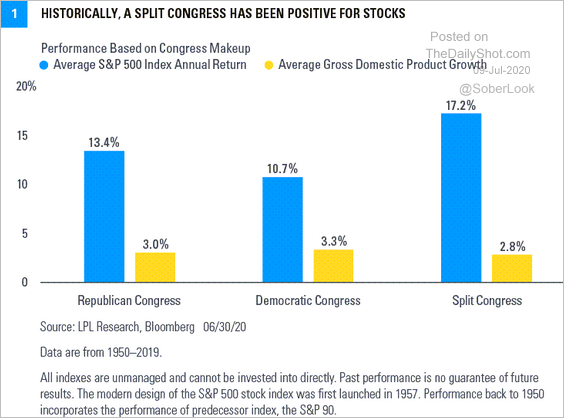 Source: LPL Research
Source: LPL Research
——————–
8. Given the market rally, VIX remains elevated.
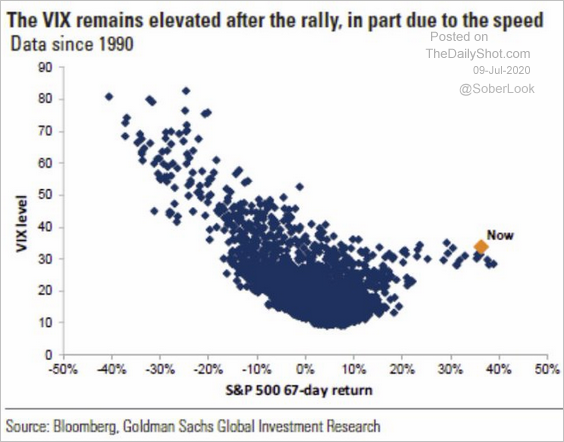 Source: @MacroCharts
Source: @MacroCharts
The election premium in VIX futures is well above the levels we saw in 2016 or 2012.
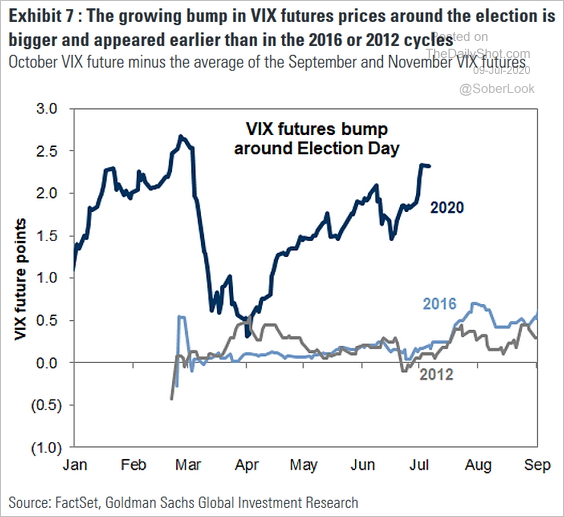 Source: @ISABELNET_SA, @GoldmanSachs Read full article
Source: @ISABELNET_SA, @GoldmanSachs Read full article
Alternatives
1. Hedge fund liquidations have accelerated this year.
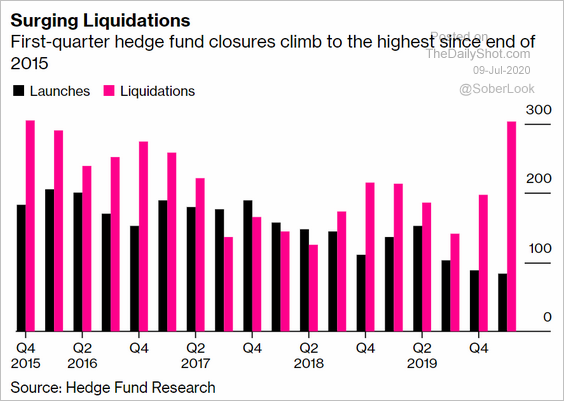 Source: @markets Read full article
Source: @markets Read full article
2. The risk/return profile of equity hedge funds hasn’t been exceptional over the past decade.
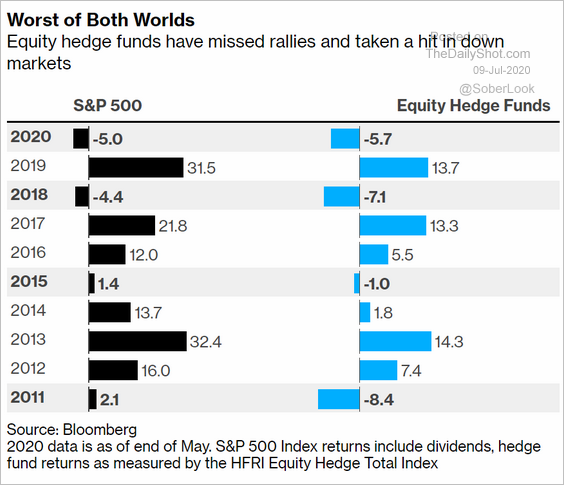 Source: @markets Read full article
Source: @markets Read full article
3. Secondary fund-of-funds products, which purchase LP interests from existing investors, are quite popular this year.
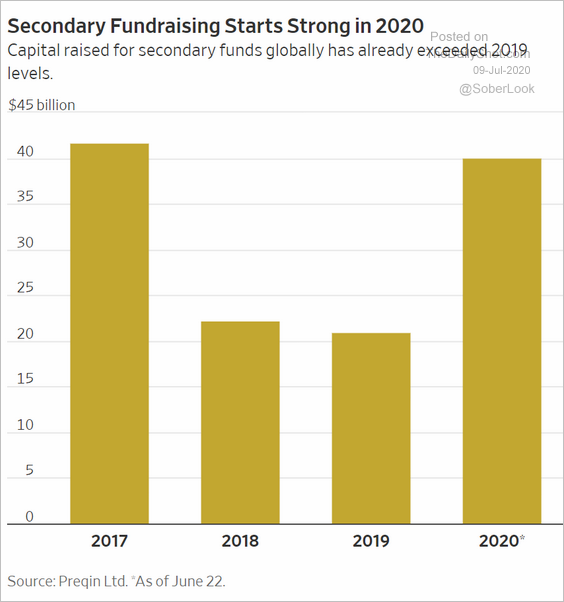 Source: @WSJ Read full article
Source: @WSJ Read full article
Rates
1. The US government just auctioned off the 10-year Treasury notes at a record low yield.
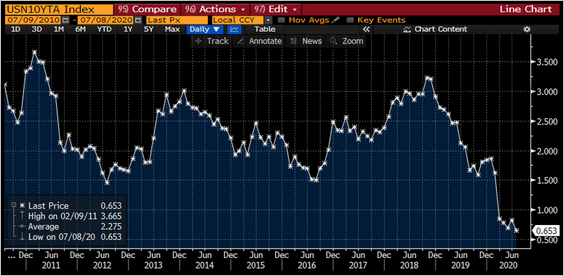 Source: @lisaabramowicz1
Source: @lisaabramowicz1
The market is not concerned about massive deficits.
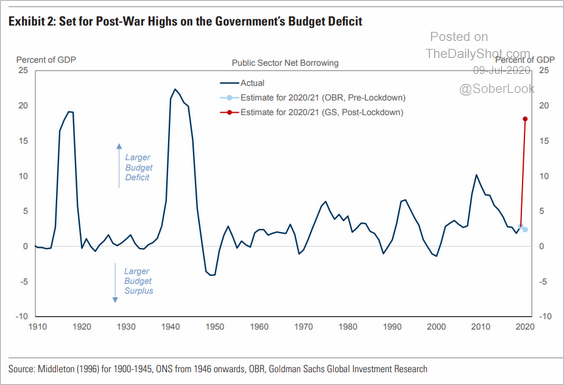 Source: Goldman Sachs
Source: Goldman Sachs
——————–
2. Does the stabilization in US manufacturing signal higher Treasury yields?
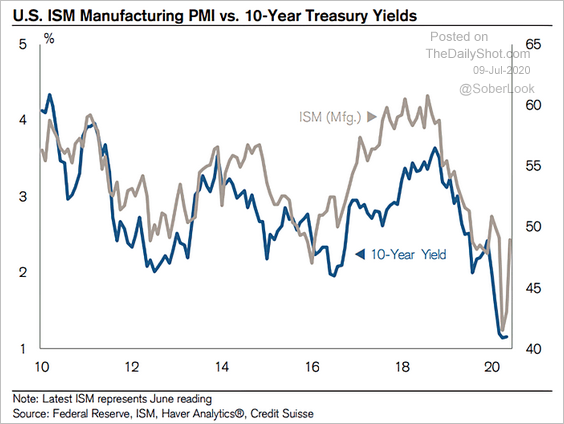 Source: @ISABELNET_SA, @csresearch
Source: @ISABELNET_SA, @csresearch
3. The iShares TIPS ETF (TIP), which holds inflation-linked Treasuries, hit a record high as investors rush to hedge against inflation.
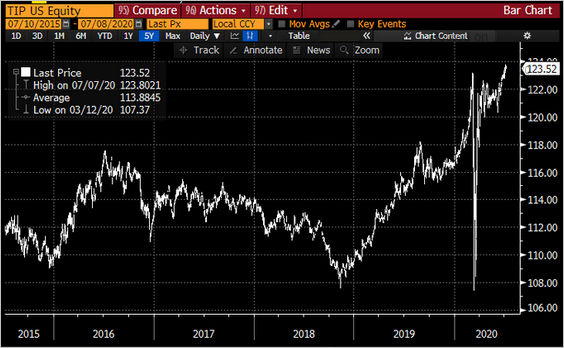 Source: @kgreifeld
Source: @kgreifeld
——————–
Food for Thought
1. Why did COVID-19 cause some Americans to relocate?
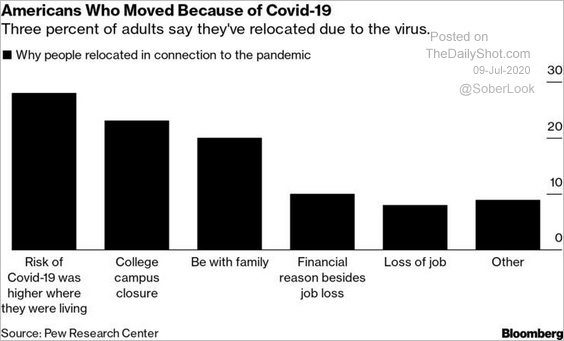 Source: @DiMartinoBooth Read full article
Source: @DiMartinoBooth Read full article
2. The world’s worst coronavirus outbreaks:
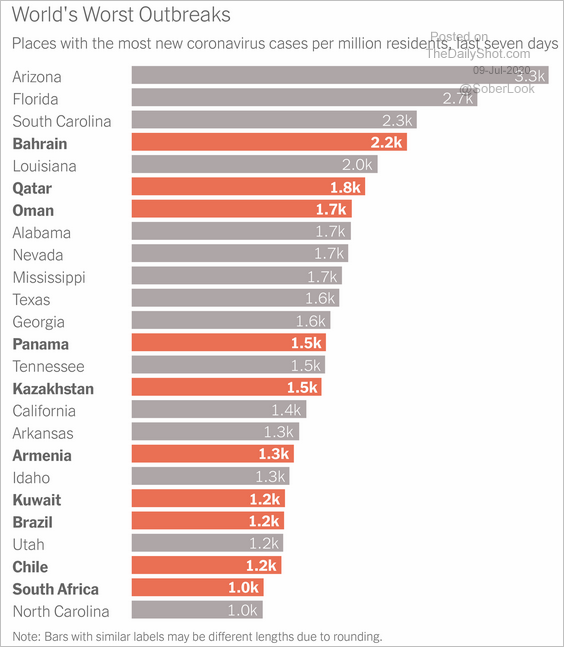 Source: The New York Times Read full article
Source: The New York Times Read full article
3. Change in employment by income:
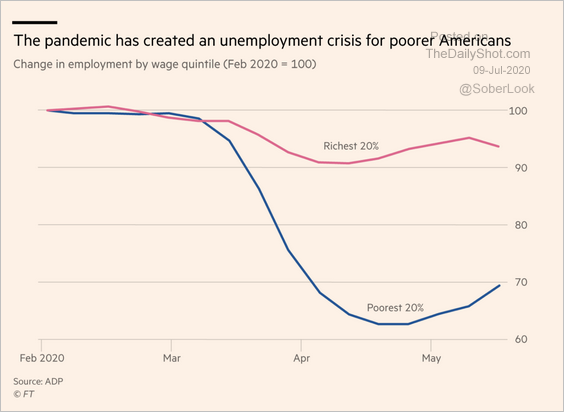 Source: @financialtimes Read full article
Source: @financialtimes Read full article
4. Cancer survival rates:
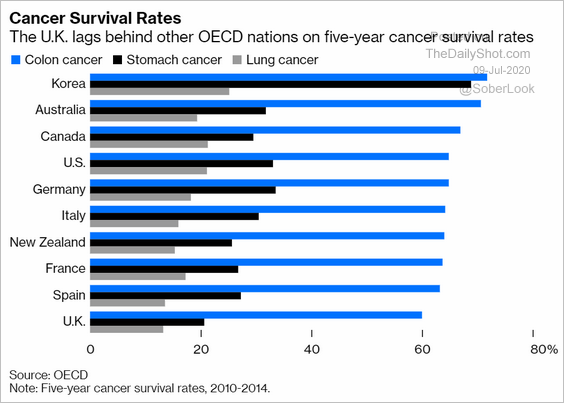 Source: @ThereseRaphael1, @bopinion Read full article
Source: @ThereseRaphael1, @bopinion Read full article
5. World leaders’ approval ratings:
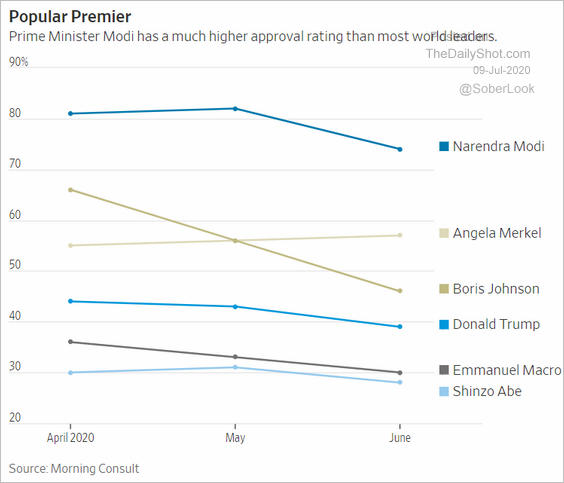 Source: @WSJ Read full article
Source: @WSJ Read full article
6. The Democratic party campaign volunteering trends:
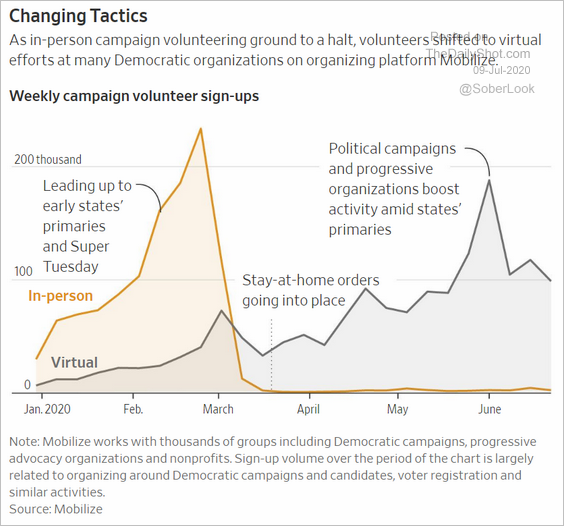 Source: @WSJ Read full article
Source: @WSJ Read full article
7. Top-tier AI researchers:
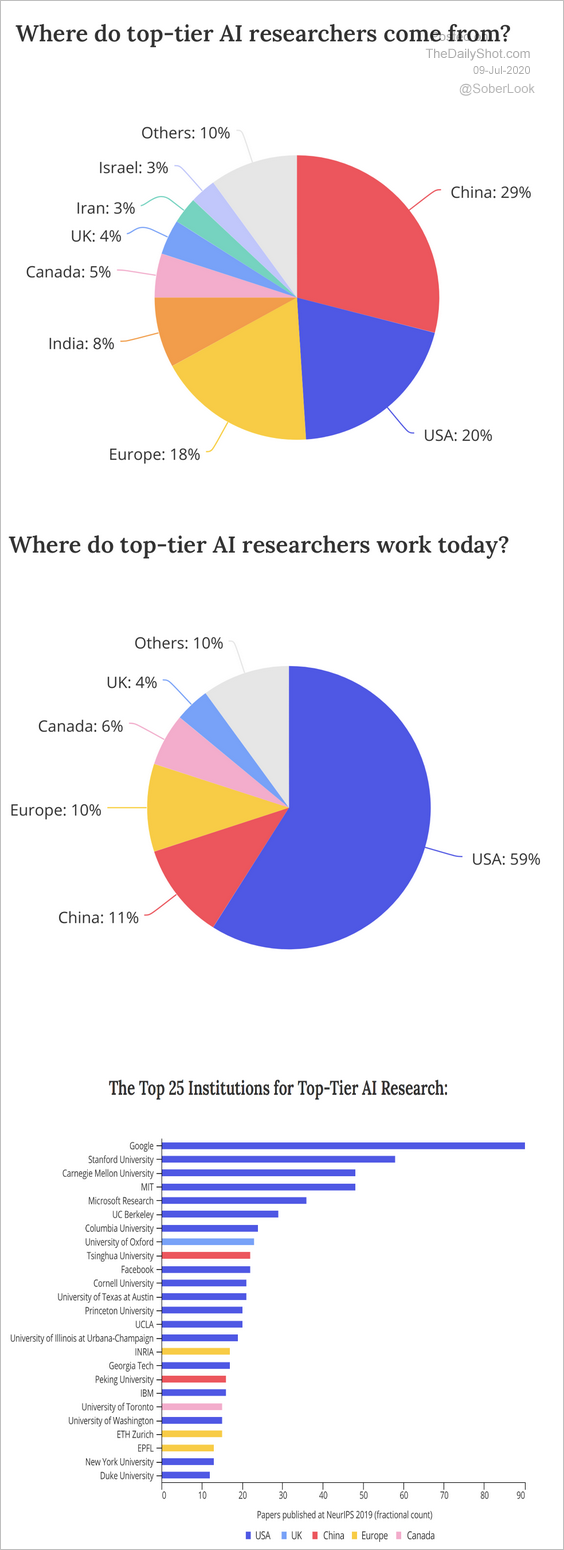 Source: MacroPolo
Source: MacroPolo
8. Nuclear warhead reductions:
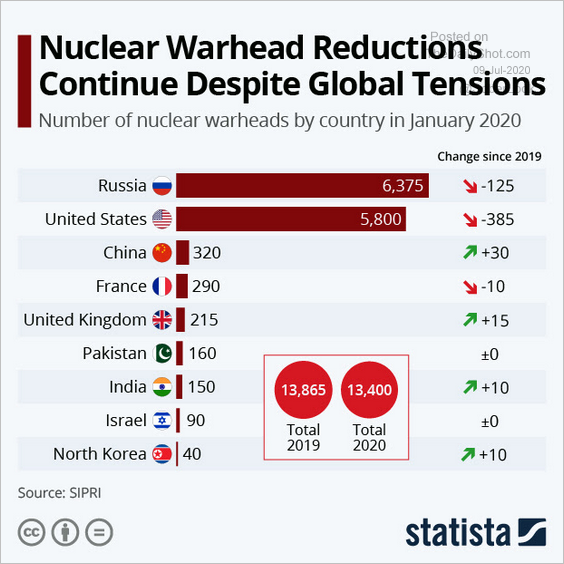 Source: Statista
Source: Statista
9. Population recovery in Hiroshima and Nagasaki after the atomic bombings in 1945.
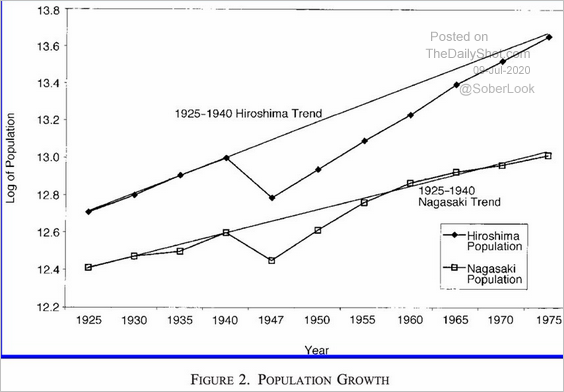 Source: @adam_tooze, Donald Davis and David Weinstein Read full article
Source: @adam_tooze, Donald Davis and David Weinstein Read full article
——————–
